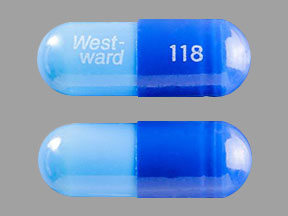Mitigare Side Effects
Generic name: colchicine
Medically reviewed by Drugs.com. Last updated on Aug 29, 2023.
Note: This document provides detailed information about Mitigare Side Effects associated with colchicine. Some dosage forms listed on this page may not apply specifically to the brand name Mitigare.
Applies to colchicine: oral capsule, oral solution, oral tablet.
Serious side effects of Mitigare
Along with its needed effects, colchicine (the active ingredient contained in Mitigare) may cause some unwanted effects. Although not all of these side effects may occur, if they do occur they may need medical attention.
Check with your doctor immediately if any of the following side effects occur while taking colchicine:
Rare side effects
- black, tarry stools
- blood in the urine or stools
- burning, "crawling", or tingling feeling in the skin
- difficulty with breathing when exercising
- fever with or without chills
- headache
- large, hive-like swellings on the face, eyelids, mouth, lips, or tongue
- muscle weakness
- numbness in the fingers or toes (usually mild)
- pain
- peeling of the skin
- pinpoint red spots on the skin
- redness of the skin
- skin rash or hives
- sore throat
- sores, ulcers, or white spots on the lips or in the mouth
- swelling
- tenderness
- unusual bleeding or bruising
- unusual tiredness or weakness
Incidence not known
- bleeding gums
- chest pain or tightness
- cough
- dark urine
- headache
- high fever
- muscle cramps, spasms, or stiffness
- muscular pain, tenderness, or wasting
- painful or difficult urination
- pale skin
- sensation of pins and needles
- stabbing pain
- swollen or painful glands
Get emergency help immediately if any of the following symptoms of overdose occur while taking colchicine:
Symptoms of overdose
- bleeding
- burning feeling in the stomach, throat, or skin
- chest pain or discomfort
- chills
- cold, clammy, pale skin
- confusion
- cough
- diarrhea (severe or bloody)
- dizziness
- eye pain
- fever
- general feeling of illness
- headache
- irregular heartbeat
- irregular, fast, slow, or shallow breathing
- muscle weakness (very severe)
- nausea, stomach pain, or vomiting (severe)
- seizures
- slow heart rate
- sore throat
- unusual tiredness
Other side effects of Mitigare
Some side effects of colchicine may occur that usually do not need medical attention. These side effects may go away during treatment as your body adjusts to the medicine. Also, your health care professional may be able to tell you about ways to prevent or reduce some of these side effects.
Check with your health care professional if any of the following side effects continue or are bothersome or if you have any questions about them:
Less common side effects
- hair loss or thinning of hair
- loss of appetite
Incidence not known
- stomach bloating from increased gas
- stomach cramping
For healthcare professionals
Applies to colchicine: compounding powder, intravenous solution, oral capsule, oral liquid, oral tablet.
General adverse events
The most common adverse reactions have included gastrointestinal symptoms and pharyngolaryngeal pain.[Ref]
Gastrointestinal
- Very common (10% or more): Diarrhea (23%)
- Common (1% to 10%): Abdominal cramping, abdominal pain, nausea, vomiting
- Frequency not reported: Lactose intolerance, gastrointestinal hemorrhage, paralytic ileus, stomatitis[Ref]
Gastrointestinal events including diarrhea, nausea, vomiting, and abdominal pain are the most common adverse reactions reported with use of this drug. These events are often the first signs of toxicity and may indicate the need for dose reduction or therapy discontinuation.[Ref]
Hematologic
- Rare (less than 0.1%): Agranulocytosis, thrombocytopenia, aplastic anemia
- Postmarketing reports: Myelosuppression, disseminated intravascular coagulation[Ref]
Nervous system
- Rare (less than 0.1%): Peripheral neuritis
- Frequency not reported: Sensory motor neuropathy[Ref]
Musculoskeletal
- Rare (less than 0.1%): Myopathy, rhabdomyolysis
- Frequency not reported: Elevated CPK, myotonia, muscle weakness, muscle pain[Ref]
Hypersensitivity
- Very rare (less than 0.01%): Hypersensitivity including angioedema[Ref]
Renal
- Frequency not reported: Renal damage, bladder spasm, anuria, oliguria[Ref]
Hepatic
- Frequency not reported: elevated AST, elevated ALT, elevated alkaline phosphatase, hepatic damage[Ref]
Respiratory
- Common (1% to 10%): Pharyngolaryngeal pain
- Postmarketing reports: Adult respiratory distress syndrome[Ref]
Ocular
- Frequency not reported: Delayed corneal wound healing[Ref]
There have been reports of corneal ulcers refractory to conventional treatment and delayed corneal wound healing following strabismus surgery in patients receiving colchicine. Discontinuation of colchicine therapy resulted in satisfactory wound healing within several days.[Ref]
Dermatologic
- Rare (less than 0.1%): Alopecia
- Very rare (less than 0.01%): Nonthrombocytopenic purpura rashes, rashes, urticaria, dermatoses, dermatitis
- Frequency not reported: Maculopapular rash[Ref]
Endocrine
- Frequency not reported: Hypothyroidism[Ref]
Genitourinary
- Rare (less than 0.1%): Azoospermia, oligospermia
- Frequency not reported: Amenorrhea, dysmenorrhea, hematuria[Ref]
Metabolic
- Frequency not reported: Loss of appetite[Ref]
References
1. Cerner Multum, Inc. "UK Summary of Product Characteristics."
2. Cerner Multum, Inc. "Australian Product Information."
3. (2009) "Product Information. Colcrys (colchicine)." AR Scientific Inc
4. (2016) "Product Information. Mitigare (colchicine)." Hikma Americas, Inc
Frequently asked questions
More about Mitigare (colchicine)
- Check interactions
- Compare alternatives
- Pricing & coupons
- Reviews (4)
- Drug images
- Dosage information
- During pregnancy
- Generic availability
- Drug class: antigout agents
- Breastfeeding
- En español
Patient resources
Other brands
Professional resources
Other brands
Colcrys, Colcigel Gel, Lodoco, Gloperba
Related treatment guides
Further information
Mitigare side effects can vary depending on the individual. Always consult your healthcare provider to ensure the information displayed on this page applies to your personal circumstances.
Note: Medication side effects may be underreported. If you are experiencing side effects that are not listed, submit a report to the FDA by following this guide.

